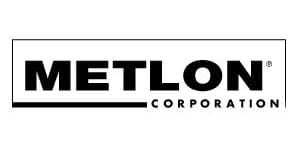Ralph Badillo, now in his late 70s, still comes in every day. Irma, his wife, does the books; daughter Peggy runs the shipping and special orders; son Joe is in parts; and younger son Paul invents equipment and has obtained 17 different patents for his inventions that keep the machine shop busy.
Besides the family, there are the machinists, of course, and then, there is Jack–Mr. Customer Service. Jack, who sports a handlebar moustache that he waxes once a day, and a gold watch fob with a knife, scissors, and screw driver for adjusting machinery, has degrees in industrial and mechanical engineering with minors in design, physics, and management. Before he came to work at Ralph’s in 1991, he spent 20 years traveling around the world setting up different shops and factories, and that is his strength–that, and his ability to win the trust of every customer he meets.
He not only understands equipment, but he knows where it goes and how to use it; he can set up an entire shop, figuring how many machines to use, which one a customer needs to buy, and how many employees are needed to run the place. He has become the showman of the company– he is Mr. Personality, and he definitely knows his stuff. Jack said it best when he remarked, “I love working at Ralph’s because it’s a small family business without the corporate nonsense. If I go on a sales call, I never have to worry. Everybody here supports each other. What makes us special to our customers is our advice and our knowledge.”
In 1927, Singer Sewing Company had its machine shop for retail and wholesale trade located in Denver, Colorado, a centralized hub for the Rocky Mountain region of the United States. It did well in the largely open and non-competitive West, but as the years wore on and more shops opened up, Singer’s management realized that it needed an expert mechanic who understood machines in more than a basic way; there were too many different kinds of machinery, too many different kinds of things being made.
Ralph Badillo, already employed by Singer in New York, took the job, and he brought his young family with him, remaining with the firm for several more years. It was Ralph who, while still with Singer, made all the contacts with the customers, did all the repairs, and knew all the machinery. He left Singer in 1975, taking his large clientele with him. He started Ralph’s Power Industrial Sewing Machine Company, and went into direct competition with Singer (which was exclusive and would not allow itself to be sold with other sewing machine brands at that time). Ralph took on machines made by Juki, Brother, Pfaff, and Adler–all fine competitors to Singer. The Singer shop, realizing it was not able to compete, ultimately gave him the right to sell the Singer machines, too, under the name of Power Sewing of Denver. It remains that way, today: Singer is sold under its own company name, but it’s all at Ralph’s.
Unimaginably enterprising, Ralph sold equipment for every aspect of sewing: Dressmaking, uniforms, saddlery, interior design, draperies, upholstery, mattresses, police and fire garments. There were no limits to what he could do. He offered on-the-job service with his trucks and mechanics, he offered parts and repairs. He was unique in his concept of customer service, and he worked the entire western portion of the country. He also picked up the prisons in multiple states when they began to contract sewing work; wherever there was a machine to be purchased, or one to be repaired, Ralph’s was there.
Ralph captured the entire market from California to east of the Mississippi, where he still controls the area. As time went on, other shops like his either went out of business, or became so specialized that they extinguished themselves. Ralph’s, by diversifying, has remained steady and continues to grow.
The machine shop was a result of son Paul’s genius. He is basically an inventor with a keen mind and the ability to come up with a solution for just about anything. Patent after patent, Paul has created attachments for various machines that manufacture such things as soft eyelets for hats, fabric grommets without metal for police and fire shirts, non-metal mattress handles and borders, airbags, automobile covers, collars for dogs and belts for people. Whatever a company needs, Paul has come up with, and Ralph’s machinists create it along with the patent. “In-house product development is the secret to our success,” says Ralph. “Our solutions require deep technological thought.”
Ultimately, Ralph’s has become a contractor and converter of parts for such plants as General Motors, General Electric, Ball Aerospace, Hartz Mountain Pet Supplies, O’Cedar mops, the Fuller Brush Company, and Samsonite Luggage. The best invention is a forever sharp glass blade, co-manufactured with Coors Ceramics, to be used for cutting through thick fabrics such as jeans and mattresses. What was originally meant for making sewing machine parts, additionally now sells tiny precision items made specifically for satellites, automobiles, university research, and more.
All of this goes on in the little building across the driveway. It has also allowed the company to survive during economic downfall and recession. Interestingly, the apparel business, including uniforms, has become a relatively small part of Ralph’s now. Says Jack, “Apparel in America basically went out during the ’70s and early ’80s.”
Today, Ralph’s ships all over the world. It does work in Africa, Canada, Honduras, Argentina, Brazil, England, France, and Germany. Ralph’s has become an institution in American machinery and sewing needs, and sees only a bright future ahead as it continues to diversify and reach out to new customers and trends.
Learn more about Ralph’s by visiting www.powersew.com












